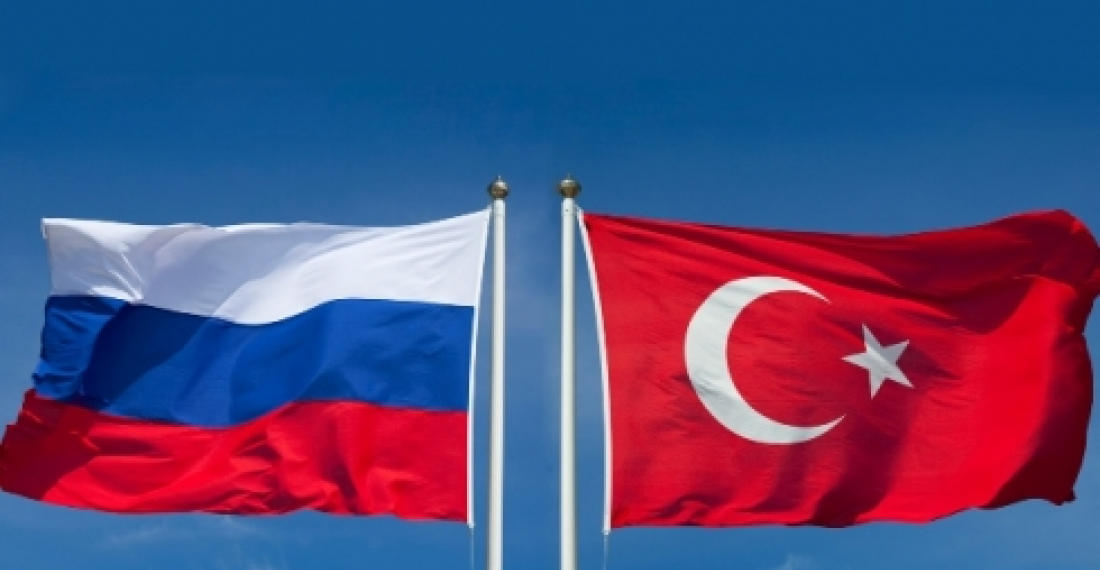Tensions in relations between Russia and Turkey following the downing of a Russian military aircraft by the Turkish Air Force on Wednesday (25 November) are a matter of serious concern in the South Caucasus where they are perceived as having a serious negative impact on the security situation in the region.
Turkey says the aircraft was shot down after it violated its airspace and after ignoring several warnings. Russia has reacted sharply to the shooting, imposing sanctions against Turkey. President Erdogan of Turkey and President Putin of Russia have exchanged sharp words about the incident over the last days.
On Friday (27 November), Russia suspended its visa free travel arrangements with Turkey and Russian travel agencies have been ordered to stop selling tourist products that include Turkey in their destination. Charter flights between the two countries are also banned. Moreover, Russia will restrict the import of certain Turkish goods except for the goods imported for personal use to an extent permitted by the regulations of the Eurasian Economic Union (EEU). The activities of Turkish organizations in Russia will also be restricted and Russian employers will not be allowed to hire Turkish citizens starting from January 1, 2016.
Speaking immediately after the news emerged of the downing of the Russian plane President Putin accused Turkey of stabbing Russia in the back, but this was dismissed by President Erdogan. "The Turkish people have never stabbed anyone in the back and are well familiar with face-to-face combat", the Turkish leader stated. "It was not the first time Russian fighter jets had violated Turkish airspace. On October 4, I called Putin and told him it's not good. We had a talk during the G-20 Summit, too. Then in the morning of 24 November, a warplane breached our airspace, ignoring warnings. So it was shot down by our F-16s," Erdogan said Friday in a speech in Turkey's province of Bayburt.
The fall-out from the incident has serious consequences for the South Caucasus region which both geo-strategically and politically is sandwiched between the two much larger regional powers.
The problem is more acute for Azerbaijan which has tried to forge special relations with both Turkey and Russia, especially in recent years. Speaking on Friday at a meeting with the visiting Turkish Foreign Minister, Mevlut Cavusoglu, President Ilham Aliev of Azerbaijan expressed his country's concerns on the matter. The Azerbaijani news Agency APA said that "touching upon ongoing tension between Turkey and Russia, President Ilham Aliyev said that historically, Azerbaijan has had close ties with both Turkey and Russia, and that it regrets and is concerned about tension between the two countries. The agency also quoted Aliev as saying that Azerbaijan is ready to make efforts to reduce and eliminate tension in Turkish-Russian relations.
The dispute between Russia and Turkey adds a further twist to the already complicated relations between Russia's main ally in the South Caucasus - Armenia, and Turkey. Armenia has recently also accused Turkish planes of violating its airspace. Armenia's border with Turkey continues to be controlled by Russian border guards, and plans are in hand to integrate Armenia's air defence system with that of Russia. Observers consider that increased Russian-Turkish tensions make it even more difficult for Armenia and Turkey to resolve their current differences and move towards diplomatic relations. The situation also increases significantly the danger of border incidents, an unwelcome development for Armenia which is already locked in daily border skirmishes with its other neighbour, Azerbaijan.
For Georgia too the emerging differences between Russia and Turkey are not welcome since they further heighten tensions in the region. Although Georgia at the moment does not have diplomatic relations with Russia it is trying to develop an ongoing dialogue with its large neighbour to the north. It also has excellent relations with Turkey, and has sought and received Turkish support for its membership bid for NATO. It is not in Georgia's interest to be caught in a dispute between its two giant neighbours.
The situation is even uncomfortable for Georgia's separatist region, the self-declared republic of Abkhazia, despite the fact that it is already locked in a tight embrace with Russia. A large Abkhaz diaspora in Turkey provides an important link between Abkhazia and the non-Russian world, something that will become more difficult given the recent events.
Apart all these geo-strategic and political considerations the new situation has immediate negative impact on thousands of people whose livelihood depends on mobility between countries and a stable security situation. Given that the development of the region is already seriously hampered as a result of the ongoing conflicts in Georgia, and between Armenia and Azerbaijan, these latest events are most unwelcome, and all South Caucasus states must be hoping for a de-escalation of the situation as soon as possible.
This report is prepared by the news team of commonspace.eu, with agency despatches







